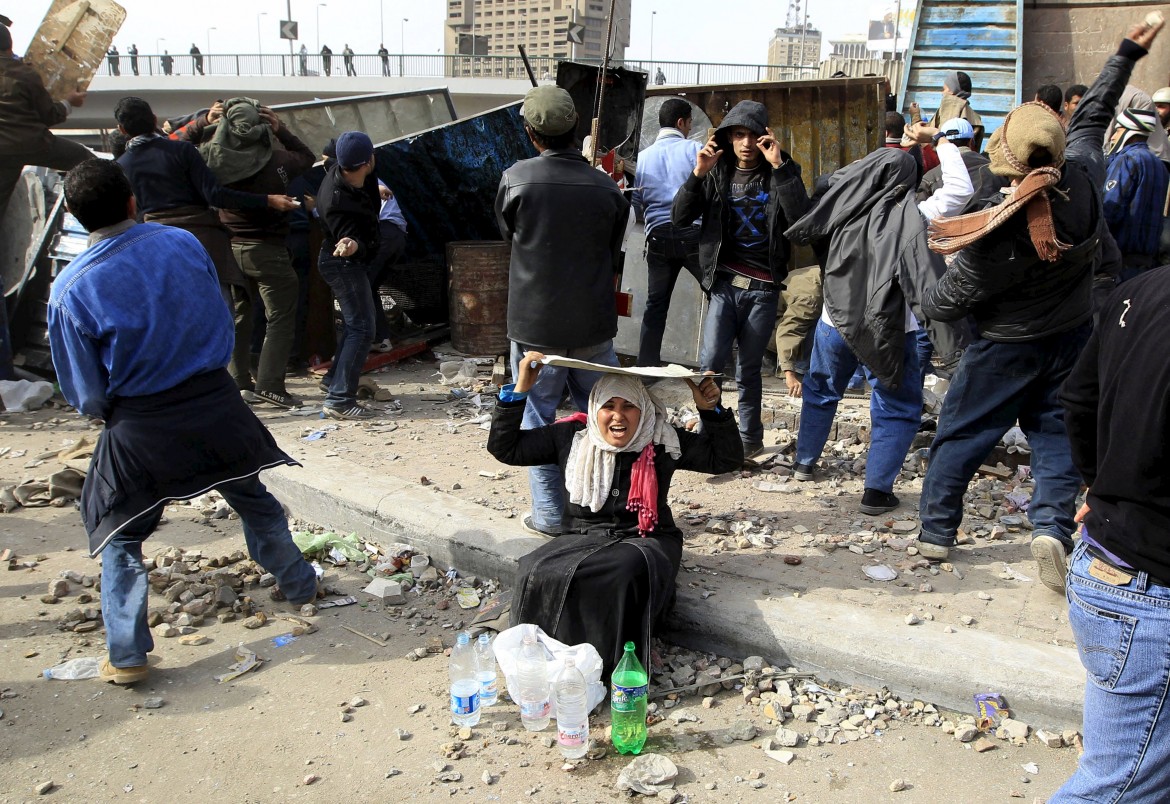Egypt
Al Sisi, ‘the lesser evil’ ignores anti-Mubarak uprising
President Abdel Fattah al Sisi spent the anniversary of the Arab Spring uprising paying tribute to 40 police officers killed suppressing terrorists, real and imagined. Egypt’s intellectual class remains silent, considering this dictator the lesser of two evils.

It wouldn’t be fair to attribute too much responsibility to Egyptian intellectuals, like the writer Alaa Al Aswani, for the silence that reigns in Egypt. Apart from a few dissenting voices, hardly anyone is criticizing the government of President Abdel Fattah al Sisi, which came to power by military coup in 2013. Five years after the Jan. 25, 2011, uprising that brought down Hosni Mubarak, the system remains authoritarian and dictatorial.
From what he has said, Aswani, the historic opponent of Mubarak, who supported the progressive Hamdeen Sabahi for president in 2012, favors the military government. It is the “lesser of two evils,” explained the writer to justify the removal of the former president and leader of the Muslim Brotherhood Mohamed Morsi (later sentenced to death) and the killing of hundreds, perhaps thousands, of his supporters by the security forces in Rabaa al-Adawiya Square.
Like Aswani, too many people, even on the left, are choosing the lesser of two evils.
So today, Egypt is ruled by a military dictatorship disguised by elections and parliamentary activities. In some ways it’s worse than Mubarak. Mubarak at least collapsed under the anger of 2 million Egyptians in Tahrir Square, hated by most of his people. Sisi, meanwhile, enjoys the open or undeclared support of many Egyptians (and Western leaders) who’ve given up on democracy and respect for human rights in order to keep power away from Islamists.
Tahrir Square on Monday was not the symbol of an uprising that opened the door to a better future for the Egyptian people. Rather, it was a good representation of Sisi’s Egypt: The main roads, bridges over the Nile and all the markets were manned by large, rapid-deployment forces of the police and army to prevent Arab Spring anniversary rallies. Officially, their purpose was to prevent “terrorist” protests — namely, demonstrations by the Muslim Brotherhood (an outlawed organization) like those of the past two years marred by dozens of deaths. But in fact the ban on demonstrations applies to all: Islamists and socialists and all those who were the protagonists of the 2011 revolution.
In Egypt, Amnesty International wrote in its 2014-15 report, “the military general who led the ousting of the country’s first post-uprising president in 2013 assumed the presidency after elections and maintained a wave of repression that targeted not only the Muslim Brotherhood and its allies, but political activists of many other stripes as well as media workers and human rights activists, with thousands imprisoned and hundreds sentenced to death.”
Among these is Alaa Abd El-Fattah, one of the leaders of the uprising in Tahrir Square, sentenced last year to five years in prison for organizing demonstrations without police permission. A few days ago the activist Mohamed Soltan, an Egyptian with U.S. citizenship, told Al Jazeera he was tortured and abused in Sisi’s prisons for two years.
Sisi on Monday appealed to Egyptians to defend the country from terrorists — the real ones of ISIS, who threaten Sinai, and those alleged ones of the Muslim Brotherhood. He didn’t make the appeal because it was the anniversary of the revolt. To Sisi, just as it was during the 30-year rule of Mubarak, Jan. 25 is the “Day of the Police.” Therefore, during the ceremony at the Police Academy in Cairo, he recalled the 40 officers killed a year ago by jihadists and laid a wreath.
“We will avenge them,” he said. “Do not ever forget them.”
Not a word about the hundreds of Egyptian civilians killed — by police — in 2011 or the hundreds of victims in 2013. The “lesser evil” only honors its own dead.
Originally published at http://ilmanifesto.info/al-sisi-il-minore-dei-due-mali-non-onora-la-rivolta-anti-mubarak/ on 2016-01-24
